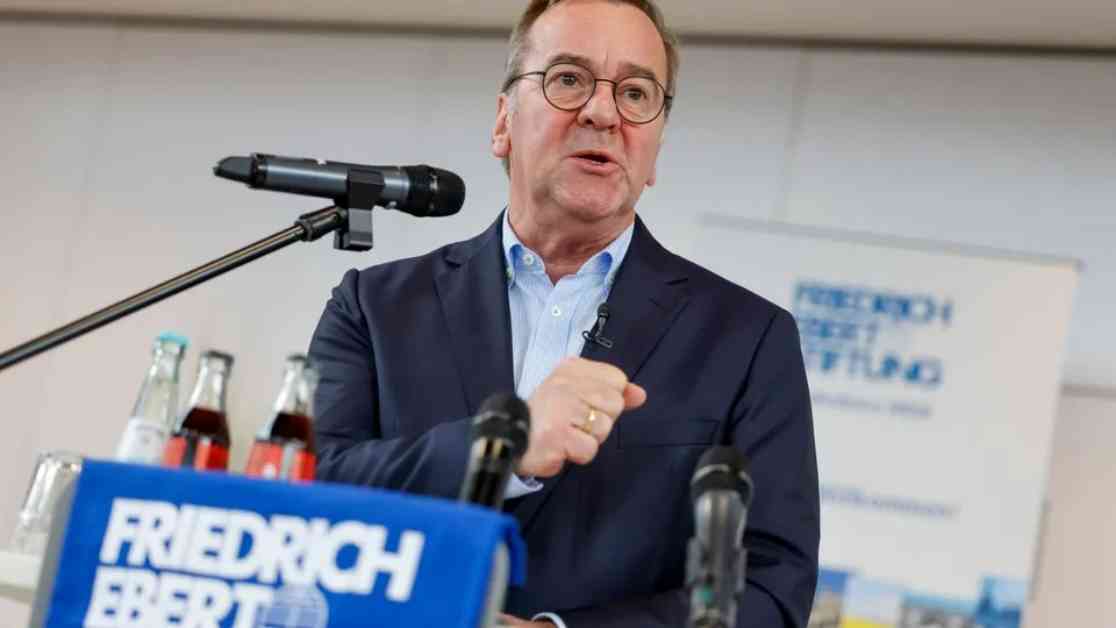Germany’s Defense Minister Issues Warning of Potential Russian Aggression by 2030
German Defense Minister Boris Pistorius has raised alarm bells, cautioning that Germany must brace itself for potential Russian hybrid warfare attacks, with a particular emphasis on the looming threat to NATO around 2030. Pistorius highlighted that Russia has been intensifying its activities, targeting Germany with various forms of hybrid warfare, including attacks on critical infrastructure, energy supply, and operations in the North and Baltic Seas. The Defense Minister also shed light on Russia’s social media campaigns and election interference attempts, aimed at sowing discord and destabilizing German society.
The Significance of Pistorius’ Warning
Pistorius’ warning comes at a crucial juncture as Germany gears up for federal elections, with the Defense Minister emerging as a prominent figure in the political landscape. A recent poll conducted by Bild am Sonntag revealed that a significant portion of respondents favored Pistorius, underscoring the widespread recognition of his influence. The Minister’s concerns about Russian aggression and hybrid warfare tactics underscore the evolving security landscape in Europe, with implications for NATO’s defense posture in the coming years.
The Implications of Russian Hybrid Warfare
The specter of Russian hybrid warfare looms large over Europe, with Pistorius pointing to a range of aggressive tactics employed by Moscow, including disinformation campaigns, cyberattacks, and covert operations. The Defense Minister’s remarks underscore the multifaceted nature of the threat posed by Russia, highlighting the need for a comprehensive and coordinated response from NATO allies. Pistorius’ warning serves as a wake-up call for German policymakers and defense officials, urging them to bolster their capabilities and readiness in the face of potential Russian aggression.
Germany’s Military Preparedness and Response
In response to the evolving threat landscape, Germany has initiated a series of military enhancement programs aimed at strengthening its armed forces. Pistorius revealed plans to expand the German military to 230,000 personnel, a significant increase from the current target of 203,000. Additionally, the German Navy secured approval for the acquisition of four advanced submarines in a multi-billion euro deal, signaling Berlin’s commitment to enhancing its maritime capabilities. These developments underscore Germany’s proactive approach to countering the growing challenges posed by Russian hybrid warfare.
The Human Side of the Story
In light of Pistorius’ warning about potential Russian aggression, it is essential to recognize the human impact of conflict and insecurity. The prospect of escalating tensions and military confrontation raises concerns about the safety and well-being of civilians, both in Germany and across Europe. As policymakers and defense officials grapple with the complexities of the security landscape, it is crucial to prioritize the protection of vulnerable populations and uphold the principles of peace and stability. The human cost of conflict underscores the urgent need for diplomatic efforts and dialogue to avert a potential crisis and safeguard the future of generations to come.

















